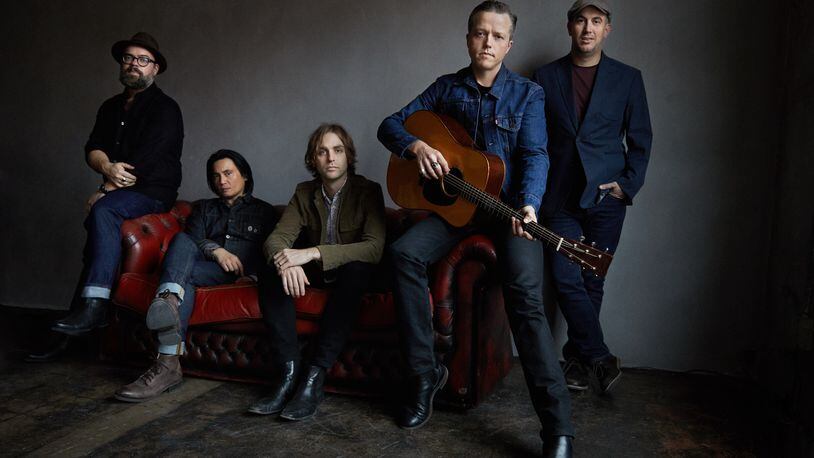I thought, In this day and age?
I thought, Didn't y'all just put out a new album? What about the inevitable marketing boost from hundreds of hashtags and user-generated content?
>> Can't-miss concerts in and around Dayton
Stoked for @JasonIsbell at the @RoseMusicCenter tonight! Stop by our table and register to vote!!! pic.twitter.com/zEZNquqifP
— HeadCount (@HeadCountOrg) July 2, 2017
Usually, I see musicians of all stripes leverage all the social media juice they can get from their fans. They tap into user-generated content, and they create specific social media marketing campaigns to drum up chatter about their new albums or their touring shows. It’s been the standard for several years now.
>> 50 things to do in Dayton this summer
Get our new album, The Nashville Sound, NOW on iTunes:https://t.co/m1MA5SvNI9
— Jason Isbell (@JasonIsbell) June 16, 2017
To be fair, I work in media and my job often sits square with marketing, especially when I'm considering audience growth or engagement. The idea of hundreds of people using a #dayton hashtag or tagging @daytondotcom on Instagram is, if I can be completely honest about my digital geekiness, pretty thrilling for me. It's one of the reasons I've continued in this industry.
>> Here's where to volunteer in and around Dayton
Here's a real, authentic review of our new album, courtesy of @TIME https://t.co/AekXf7FjB3
— Jason Isbell (@JasonIsbell) June 29, 2017
But there's that little word: engagement. Which now -- at least in many data-driven industries -- is something we talk about in terms like reach, comments, shares. It's how we measure response on Facebook, Instagram, Snapchat, Twitter.
But what about engagement in real life?
It sounds simple and corny, and I’m not the first by far to bring it up, but it’s true. Watching a show without fiddling with my pocket-computer-data-gizmo was refreshing.
>> 10 of the best chalkboard signs from Heart Mercantile
I don’t purport to know the real reason Isbell didn’t allow it, but I can take a few guesses: 1.) control over the way your art is presented (I mean honestly, I kind of get why people wouldn’t want shaky, low-quality clips flooding the Internet en masse), 2.) he wanted people to enjoy the experience unfettered by technology, or 3.) all of the above.
It took the pressure off of finding “that perfect moment” to capture, and instead allowed me to focus on the experience. Which I must say was absolutely lovely, given that there weren’t a sea of glowing screens floating between me and the stage.
It was just me, my honey, and the music. Which is just how I like it.
What do you think? Have you been to a concert where you weren’t allowed to take photos and video? What was the experience like?
About the Author
